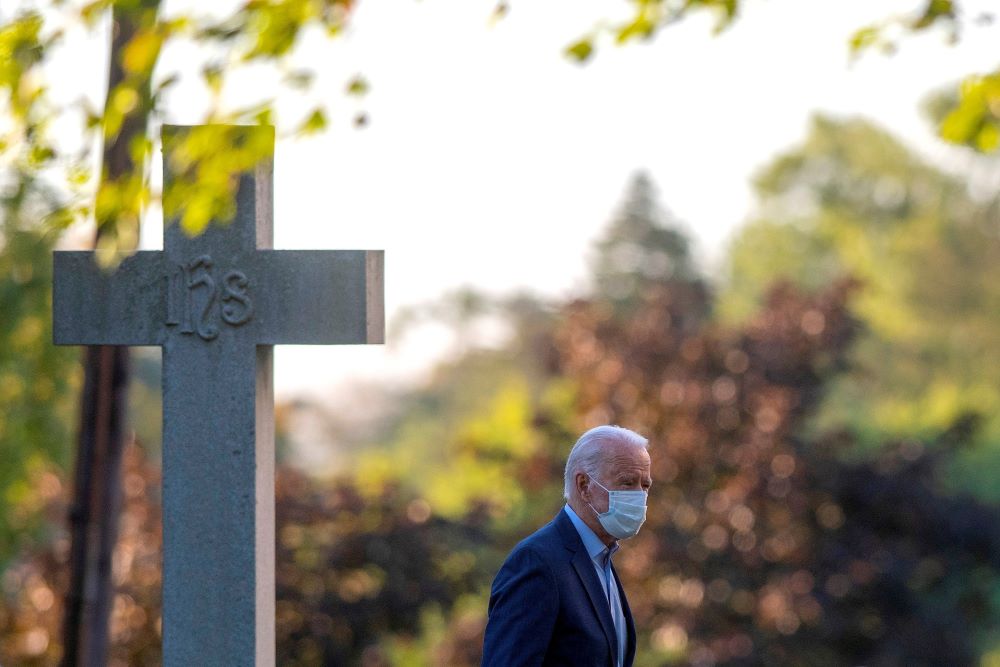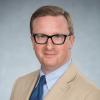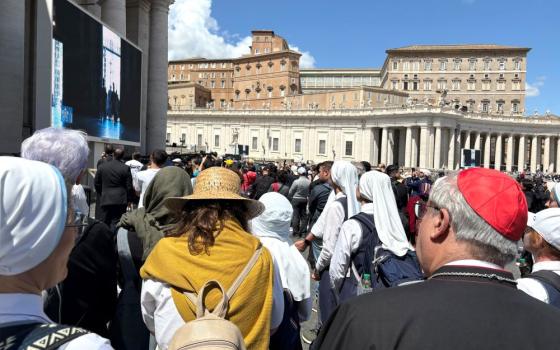President John F. Kennedy is pictured with Pope Paul VI at the Vatican July 2, 1963. In a 1960 speech, Kennedy, then the Democratic presidential candidate, sought to assure voters that Catholic leaders would not influence his policies. (CNS file photo)
Along the way toward trying to become the first Roman Catholic elected president of the United States, John F. Kennedy attempted to calm the worries of Protestant voters when he said that
I believe in an America where the separation of church and state is absolute — where no Catholic prelate would tell the President (should he be Catholic) how to act, and no Protestant minister would tell his parishioners for whom to vote.
Kennedy was successful, of course. The 1960 speech can be credited for helping Kennedy win the same level of support from Protestants won by Adlai Stevenson in 1956. Many Catholics eventually embraced the speech with enthusiasm (even as some others subsequently have argued Kennedy was wrong).
Now 64 years later, as a Roman Catholic seeks a second presidential term for the first time ever, Washington, D.C., Cardinal Wilton Gregory has worried publicly that Joe Biden "picks and chooses dimensions of the faith," "twist[ing] and turn[ing] some dimensions of the faith as a political advantage." Even when pressed by the Episcopal bishop of Washington about whether “It's possible … not to require everyone that you lead in your country to be guided by all the precepts of your faith," Cardinal Gregory seemed unsure.
Plenty of evidence assures us in 2024 that Catholic bishops in the United States expect Catholics in public life in fact to listen to "Catholic prelate[s who] would tell the President" or other Catholic elected officials "how to act." It seems very much as though the U.S. bishops reject the position that won the election for John Kennedy and credibility for Catholics in U.S. politics at a time when others worried Catholics could not be trusted with power.
The U.S. bishops continue to receive opposition as anti-Catholicism.
What makes this situation especially notable is that 2024 brings us the 75th anniversary of Paul Blanshard's American Freedom and Catholic Power. When his 1949 book reached readers, Blanshard was an associate editor and correspondent for The Nation and the book was an updated expansion of several articles he had written for that magazine between 1947 and 1948. In decades since, the book has become infamous.
Blanshard pointed to "the cultural, political, and economic policies of the rulers of the Catholic Church" whom he understood to be encroaching on the independence of the public square. Blanshard saw a threat to the American way of life from a Catholic Church he regarded as an authoritarian shadow state within the United States, one that controlled Catholic voters and public officials with dictatorial power. This Catholic power, the book argued, was a threat to American freedom.
Blanshard's argument gathers some persuasiveness as he turns his attention to "the whole Catholic program," which is "almost as much political as spiritual." The persuasiveness arises from how he describes a thing that the church still is doing.

Then-Democratic U.S. presidential nominee Joe Biden arrives to attend a morning service at St. Joseph's on the Brandywine Catholic Church in Greenville, Delaware, Sept. 20, 2020. (CNS/Reuters/Mark Makela)
Blanshard wrote that, "The Catholic hierarchy does not hesitate to condemn or boycott specific individuals or whole classes of persons whenever the church is strong enough to enforce such strictures." We know that church institutions still today rescind invitations and forbid speakers who deal in topics that they say challenge Catholic faith.
And, Blanshard wrote, "the Catholic hierarchy still does not accept either the method or the finality of science when the results of scientific inquiry conflict with … belief and practice." There are places where our church has gotten better about this. But recent arguments about gender theory and gender ideology suggest that our church still resists accepting the conclusions of empirical science when those conclusions are difficult.
Even further, Blanshard wrote, "The most striking and immediate result of Catholic ascendancy in our democracy would be the transfer of control of education, religion, and family relationships to the Catholic hierarchy." Here is what Blanshard was most concerned about. A Catholic official elected by Catholic voters who took guidance from Catholic bishops would enact the Catholic faith through public policy across a whole nation filled with nonbelievers and other believers.
The "political program" of the Catholic Church troubled Blanshard more than anything else, and we should be honest to say Blanshard’s concern was not without foundation. Blanshard pointed toward real problems that still are with us today. At least in terms of its official institutions and leadership, the Catholic Church today still seeks unabashedly to enact our faith by means of our voters and Catholic public officials.
In fact, we act even in the more organized ways like a pressure group just as Blanshard accused the church. Right now 32 state Catholic conferences and the U.S. Conference of Catholic Bishops function separately as intergovernmental lobbyists. Their work, like any other lobbyist, is to enact a "political program." Much of it is broadly beneficial work against poverty or on behalf of migrants. There are other cases where non-Catholics would be right to cast a wary eye toward how the lobbying of Catholic conferences fulfill a political scientist's definition of lobbying — seeking private goods by public means. Catholic conferences do indeed seek to enact church teachings that would not reflect a broad public consensus about a benefit.
Probably, 1949 was the last moment when a book like Blanshard's could have been published. While it found acclaim among respected figures like John Dewey and Albert Einstein, the book shocked even many non-Catholic readers. Anti-Catholicism waned after World War II, and Blanshard's vivid suspicion of Catholics failed to alarm people. Blanshard’s book became notorious. The New York public schools banned American Freedom and Catholic Power from their libraries, and there were reports that The New York Times refused to advertise it and that some booksellers refused to carry it. From the perspective of today Blanshard's book marked a turning point when anti-Catholicism began to be less acceptable than Catholicism and Blashard's name has come to function as a synonym for anti-Catholic prejudice.
Yet even as he was worried about "Catholic Power," Blanshard was not a simple enemy of Catholicism. He lamented the "Anti-Catholic fanatics" who "burned … convents and spread wild rumors." But he was sober about the way "Any critic of the … Catholic hierarchy must steel himself to being called 'anti-Catholic,' because it is part of the hierachy’s strategy of defense to place that brand upon all its opponents." The passing of 75 years does not make Blanshard seem wrong. The U.S. bishops continue to receive opposition as anti-Catholicism. As recently as the summer of 2023 Catholic bishops and Catholic organizations mounted a campaign in response to what they perceived as anti-Catholicism—a Pride Night event at Dodger Stadium that injured or excluded no one (and, an event seen differently by women religious who understood the context).
Advertisement
Anti-Catholicism is a difficult case to make in 2024. Catholics today not only are accepted but wield extraordinary social and political power. A Catholic is president of the United States. The chief justice of the United States, four other justices of the Supreme Court, 124 members of the House (three of the last five speakers), 27 senators, and 16 state governors are Catholics. They prove Blanshard's fears of "Catholic power" to have been baseless, at least in one sense. Most Catholics in public life understand their duty to keep their oath to a Constitution that is for the people of the U.S. who all enjoy a right to religious liberty. Still, a noisy minority of U.S. Catholics still seek to fulfill Blanshard’s worst fears today. As Joe Biden seeks a second term, the only complaint about or even mention of his faith arises not from The Nation or skeptical Protestants, but from within our own church. The loudest complaints seem to come from our bishops.
If the plan of the U.S. bishops in 2024 were to vindicate Paul Blanshard's allegations, they could not be doing better. Most Catholics in public life prove Blanshard wrong daily by heeding President Kennedy's example, the wise and prudent way to be faithfully Catholic while keeping faith with the people of a diverse, free constitutional state.





